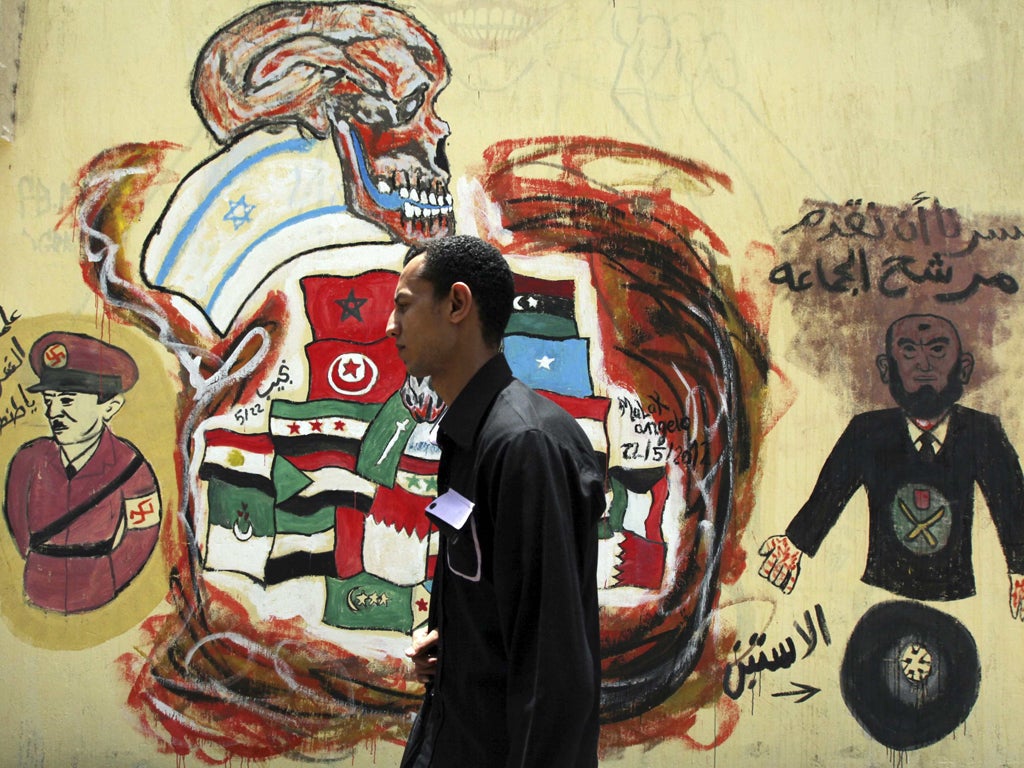Front-runner attacked on way to Egypt's landmark poll
The Military Council is taking the credit for the transition to democracy, but divisions remain

Your support helps us to tell the story
From reproductive rights to climate change to Big Tech, The Independent is on the ground when the story is developing. Whether it's investigating the financials of Elon Musk's pro-Trump PAC or producing our latest documentary, 'The A Word', which shines a light on the American women fighting for reproductive rights, we know how important it is to parse out the facts from the messaging.
At such a critical moment in US history, we need reporters on the ground. Your donation allows us to keep sending journalists to speak to both sides of the story.
The Independent is trusted by Americans across the entire political spectrum. And unlike many other quality news outlets, we choose not to lock Americans out of our reporting and analysis with paywalls. We believe quality journalism should be available to everyone, paid for by those who can afford it.
Your support makes all the difference.The front page of yesterday's state-owned Al-Ahram newspaper said it all. Above a giant photo of a young soldier taking an elderly women by the hand and helping her into a polling station, a banner headline read: "The people regain their free will".
As Egyptians went to the ballot boxes for the second day of voting yesterday, the message seemed clear: the ruling Military Council, depicted in its photo by a kindly young recruit in a khaki cap and shades, had successfully guided the masses towards the completion of their historic uprising.
But in a sign of the problems that may lie in store, scuffles broke out in eastern Cairo after the arrival of Ahmed Shafik, the former air force chief who has become one of the front-runners to succeed Hosni Mubarak. Mr Shafik, who had come to cast his vote, has been sneeringly dismissive about those who led last year's uprising.
Leaving the polling station, he was attacked by shoe-throwing protesters, many of whom see him as the standard-bearer of the old regime. Yet his star has risen in recent months, thanks to the perception that he is the man to end months of street battles and economic uncertainty.
Perhaps more importantly, the former fighter pilot is believed to have the military's backing. High-ranking officials have denied this, but in the minds of many Egyptians – not least secularists and the Christian minority – a military man, however well connected to the old regime, would represent a lesser evil compared with the political Islamists who now control Egypt's parliament.
For many activists this is worrying. But for a military keen to shield its business and political privileges from civilian oversight, the pre-eminence of Shafik is preferable to the main alternative of populist political Islam.
For all the political jostling, this week's exercise in multi-candidate ballot has been a milestone of sorts. Yesterday, millions more voters arrived at polling stations acrosss the country. In some areas the turnout has not been as high as expected – a fact put down to hot weather and voter apathy after three rounds of parliamentary elections.
There were also numerous reports of violations, with long-dead voters appearing on election lists and busloads of supporters being shuttled to the polling stations. Yet overall, the election appears to have passed without any of the wide-scale fraud and intimidation that marred previous polls.
Join our commenting forum
Join thought-provoking conversations, follow other Independent readers and see their replies
Comments